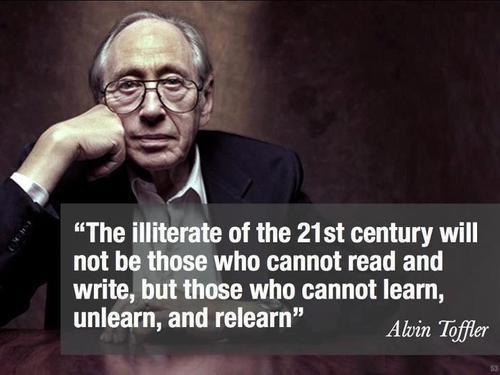19 Mar 7 ways to create an enterprising culture at school
We’re passionate about enterprise education in schools, but how educators inspire enterprising behaviour in children can be challenging. Should enterprise education be a statutory element of the curriculum? If so, at what age should it become statutory? Primary school? Secondary school? Should enterprise be combined with financial education or does it have a broader role to play?
Some people want enterprise education to be compulsory, but school curricula are already jam-packed with topics teachers have to cover. For this reason, we do not believe enterprise education should be a statutory part of the curriculum but, instead, schools should produce a culture of enterprise amongst pupils. Enterprise and being enterprising is incredibly important in cultivating creativity, resourcefulness, resilience and a positive mindset.
7 ways to create an enterprising culture in schools
1. Lead from the front
Something which is clear from the data is that schools with a strong culture of enterprise have an enterprise leader. This is often the headteacher but it doesn’t have to be – it can be anyone with a passion for enterprise. I have worked with schools whose enterprise coordinator is a parent who helps with after school enterprise clubs and hosts assemblies on occasion. The key point here is ‘leadership’. If you’re going to make change happen, you’ll need to build support from other teachers and facilitate this change – find resources, make provisions and make a plan – an enterprising culture will not develop itself!
2. Break away from ‘rights’ and ‘wrongs’ where possible
Creativity and innovation underpin enterprise learning. Avoiding straight right and wrongs will not always be possible but the best teachers find ways to aid creativity. Thinking outside the box to try and solve a problem is incredibly valuable and, given enough time, students learn which is the most efficient way to do things. Give small pointers, ask questions, praise ingenuity – avoid spoon-feeding as much as possible. The journey from A to B is usually incredibly diverse and challenging in real life, particularly in enterprise, so trying to keep students in narrow tramlines just isn’t going to help with real-life challenges.
3. Use real life context as often as possible
For children, school and out-of-school life is very different and they seem completely disconnected. When do we use geometry, algebra, Spanish, the ancient Egyptians and CAD CAM on a weekend with the family at the shops or the beach? Sometimes the things we learn about in school seem a little fantastical. As educators, we have to provide as much relevance to the real world as possible and show the actual application of some of the things we’re learning about. Obviously this isn’t possible with many subjects so with the ones we can, like art & design, maths, PSHE and some elements of science, we have to put in real life context.
Why is this so important in developing an enterprising culture? Because enterprise happens in the real world. We have to innovate, overcome challenges and succeed in the real world and the sooner children experience this, the more confident they become. A common trait in young entrepreneurs is they are very ‘worldly’ in that they seem to know a great deal about the world in practise, not just in theory.
4. Differentiate financial education from enterprise education
This goes for ‘careers’ too. In speaking with teachers and school representatives about enterprise, I often hear “yes, we do financial education” or “yes, we have careers lessons in school” but neither is enterprise. Financial education, whilst vital, does not help to develop a mindset of resilience, innovation and resourcefulness. It’s almost as if learning how money works equals knowing what a business does. It does not! And it’s the same for careers. Knowing what careers are available does not help develop an attitude of positivity towards work, career and potentially self-employment. It is very rare that enterprise is considered as a genuine career path in school career lessons. Create a differential between them and this will help focus on creating an enterprising culture in school rather than teaching the mechanics of money and finding a job.
5. Use basic economic principles to help understanding
Very often, maths gets brought into the enterprise equation. This is because calculating the cost of producing something can be used to price a product and vice versa, we can also work out profit and the margin as a percentage. This is something that children should be doing every day as part of their financial education and numeracy skills. The truth is, however, this is merely a foundation for the process of ‘turning a profit’ not the hard part of actually creating a product or supply a service people ‘demand’.
Understanding the ‘why’ of why people buy things and use things is so much more important than how they pay for them! The basic concepts of supply and demand as well as economies of scales should be used in everyday problem-solving ideas and scenario-building in school. This can then be tied in to school fetes or events which will compound this understanding and develop an enterprising culture.
I know this is crazy but…
6. Stay away from money as much as possible
I’m a firm believer that enterprise does not just mean ‘making money’ and, therefore, that ‘enterprise education’ is just ‘learning how to make money’. For anyone who’s tried being an entrepreneur; it’s no get rich quick career! With the questionable portrayal of business in popular media, especially the likes of Dragons’ Den and the Apprentice, you really can’t see much beyond the figures with wads of cash on the Dragons’ desk and all the Apprentice tasks revolving around profit.
People start businesses because they have a passion, an interest or because they want to help people by proving something that will make their life better. Even if someone does want to make money quickly, they still have to find a way of doing it and work hard to achieve it. The representation of the end of the journey is usually lots of money, but the journey of an entrepreneur is incredibly challenging with many living on the breadline for years before they start making money, That’s why to give students an impression that it’s all about the money is simply false. Stress the need to solve problems and provide for people. Do something you enjoy doing because you’ll be doing it for a long time.
7. Have fun with enterprise
Because there are fewer rights and wrong and the fact that creativity plays such an important role, make enterprise learning as fun and relaxed as possible. Creating a positive feeling towards enterprise is incredibly important in developing a culture of enterprise. If you’re looking for a way to immerse students in an entrepreneurial environment, running an enterprise day at your school is a great way to do it. These days are fun-filled and there are lots of life lessons and skills to be learned outside of a typical school day.






